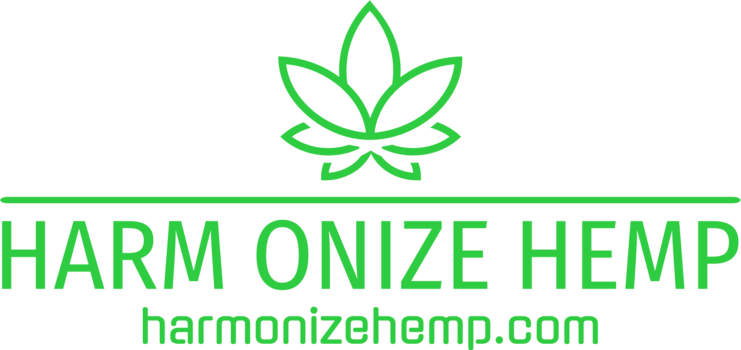Lavender, with its delicate purple blooms and soothing aroma, is more than just a fragrant flower. It has been used for centuries in traditional medicine and culinary practices for its therapeutic properties. Lavender tea and extracts, derived from the flowers of the Lavandula angustifolia plant, offer a variety of health benefits and culinary uses. In this comprehensive guide, we’ll delve into four key benefits and uses of lavender tea and extracts, shedding light on their potential applications and ways to incorporate them into your daily routine.
Relaxation and Stress Relief
Lavender is renowned for its calming and relaxing properties, making it a popular choice for promoting relaxation and reducing stress. Lavender tea, brewed from dried lavender flowers, can be enjoyed as a soothing bedtime beverage to help unwind after a long day. The aromatic compounds in lavender, such as linalool and linalyl acetate, have been shown to have anxiolytic (anxiety-reducing) and sedative effects, which can help alleviate feelings of tension and promote restful sleep. Additionally, lavender extracts are commonly used in aromatherapy practices to induce relaxation and create a calming atmosphere in the home.
Digestive Health
Lavender tea and extracts may offer benefits for digestive health, particularly in alleviating symptoms of gastrointestinal discomfort. The compounds found in lavender, including polyphenols and terpenes, possess anti-inflammatory and carminative properties, which can help soothe the digestive tract and reduce symptoms such as bloating, gas, and indigestion. Drinking lavender tea after meals or using lavender extracts in cooking or baking can aid in digestion and promote gastrointestinal comfort. Additionally, lavender aromatherapy may help reduce nausea and vomiting, making it a valuable tool for individuals prone to digestive disturbances.
Skin and Hair Care
Lavender extracts are commonly used in skincare and hair care products due to their antimicrobial, anti-inflammatory, and antioxidant properties. Lavender oil, derived from lavender flowers through steam distillation, is prized for its ability to soothe irritated skin, reduce redness and inflammation, and promote healing of minor cuts, burns, and insect bites. Incorporating lavender tea or extracts into DIY skincare formulations, such as facial toners, bath soaks, and body scrubs, can help nourish and rejuvenate the skin. Additionally, lavender-infused hair products, such as shampoos and conditioners, can promote scalp health, stimulate hair growth, and impart a pleasant fragrance to the hair.
Respiratory Health
Lavender tea and extracts may have beneficial effects on respiratory health, particularly in relieving symptoms of respiratory conditions such as coughs, colds, and congestion. The anti-inflammatory and antimicrobial properties of lavender can help soothe irritated airways, reduce inflammation, and promote clearer breathing. Drinking warm lavender tea or inhaling steam infused with lavender extracts can help alleviate nasal congestion, sinus pressure, and throat irritation associated with respiratory infections. Additionally, lavender aromatherapy can help relax the respiratory muscles and promote a sense of well-being during times of respiratory discomfort.
How to Incorporate Lavender Tea and Extracts into Your Routine:
Beverages
Brew lavender tea by steeping dried lavender flowers in hot water for 5-10 minutes. Add honey or lemon for sweetness and enjoy as a soothing beverage.
Cooking and Baking
Use culinary-grade lavender extracts in cooking and baking to impart a subtle floral flavor to dishes. Lavender pairs well with sweet and savory ingredients, such as baked goods, desserts, marinades, and sauces.
Skincare
Add a few drops of lavender essential oil or lavender-infused carrier oils to DIY skincare formulations, such as facial serums, lotions, and balms. Use lavender-infused products to soothe irritated skin, promote healing, and maintain healthy skin.
Aromatherapy:
Diffuse lavender essential oil in an aromatherapy diffuser to create a calming atmosphere in your home. Alternatively, add a few drops of lavender oil to a warm bath or shower to promote relaxation and relieve tension.
Precautions and Considerations:
While lavender tea and extracts are generally safe for most people when used in moderation, it’s essential to exercise caution and consider the following:
Allergies:
Individuals with known allergies to lavender or other plants in the Lamiaceae family (such as mint, sage, or basil) should avoid lavender tea and extracts to prevent allergic reactions.
Pregnancy and Lactation:
Pregnant and breastfeeding individuals should consult with a healthcare professional before using lavender products, as their safety during pregnancy and lactation has not been conclusively established.
Medication Interactions
Lavender supplements or extracts may interact with certain medications, including sedatives, antidepressants, and blood thinners. If you are taking medication, consult with a healthcare provider before using lavender products to avoid potential interactions.
Skin Sensitivity
Some individuals may experience skin irritation or allergic reactions when using lavender essential oil or extracts topically. Always perform a patch test on a small area of skin before using lavender products extensively.
Conclusion:
Lavender tea and extracts offer a myriad of benefits for relaxation, digestive health, skincare, and respiratory well-being. Whether enjoyed as a soothing beverage, incorporated into culinary creations, or used in aromatherapy practices, lavender adds a touch of tranquility and natural healing to daily life. By exploring the diverse uses and applications of lavender tea and extracts, you can harness the therapeutic properties of this beloved botanical and enhance your overall health and wellness regimen. As with any herbal remedy, it’s essential to use lavender products mindfully and consult with a healthcare professional if you have any concerns or underlying health conditions.
- Benefits of Iodine Supplements - April 3, 2024
- Benefits of Hops Supplements - April 3, 2024
- Benefits of Green Tea Supplements - April 3, 2024
